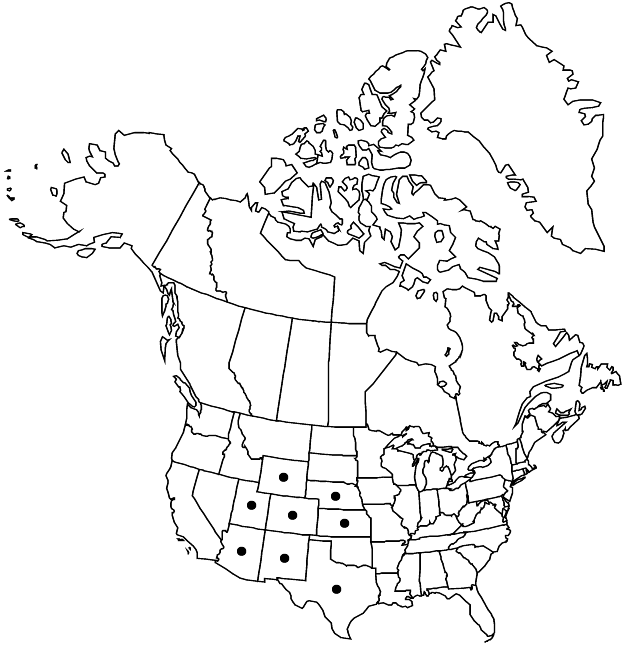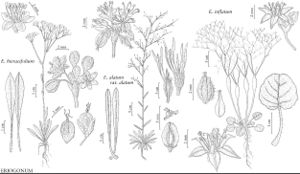Eriogonum alatum var. alatum
Plants 5–13(–17) dm. Aerial flowering stems strigose. Leaves basal, infrequently cauline; basal: petiole 2–6 cm, strigose to woolly or glabrous, blade lanceolate to oblanceolate, (3–)5–15 × 0.3–2 cm, strigose or glabrous except for margins and midveins; cauline: blade 1–6 cm. Inflorescences 2–10 dm; branches thinly strigose, infrequently glabrous at maturity. Peduncles strigose or nearly so. Involucres strigose or rarely glabrous. Perianths yellow to yellowish green. Achenes 5–8 × 3–6 mm. 2n = 40.
Phenology: Flowering Jun–Oct.
Habitat: Sandy to gravelly flats and slopes, mixed grassland, saltbush, and sagebrush communities, oak, pinyon and/or juniper, and montane conifer woodlands
Elevation: (500-)1300-3100(-4000) m
Distribution

Ariz., Colo., Kans., Nebr., N.Mex., Tex., Utah, Wyo., Mexico (Chihuahua).
Discussion
Variety alatum is widespread and often common from southeastern Wyoming and adjacent southwestern Nebraska southward through eastern Utah, Colorado, and western Kansas to northern Arizona, New Mexico, and northern and western Texas to northern Chihuahua, Mexico. The variety rarely is cultivated, as an individual plant may go up to seven (or more) years before flowering, after which it dies.
Inclusion here of var. mogollense, characterized by spatulate leaves and woolly petiole bases, is now suggested, as both features fail to hold in some populations near Flagstaff, Arizona, the center of its distribution.
Selected References
None.
